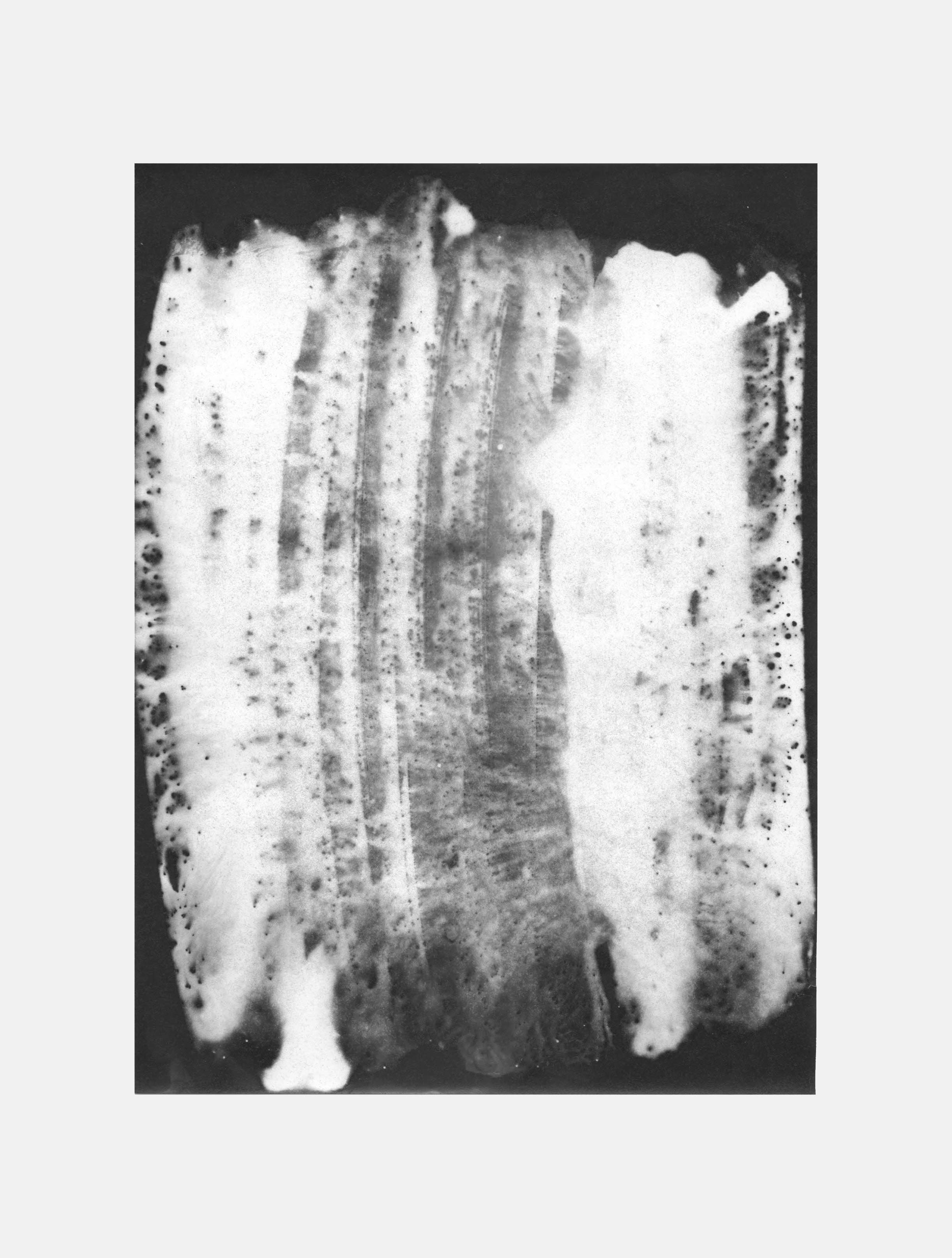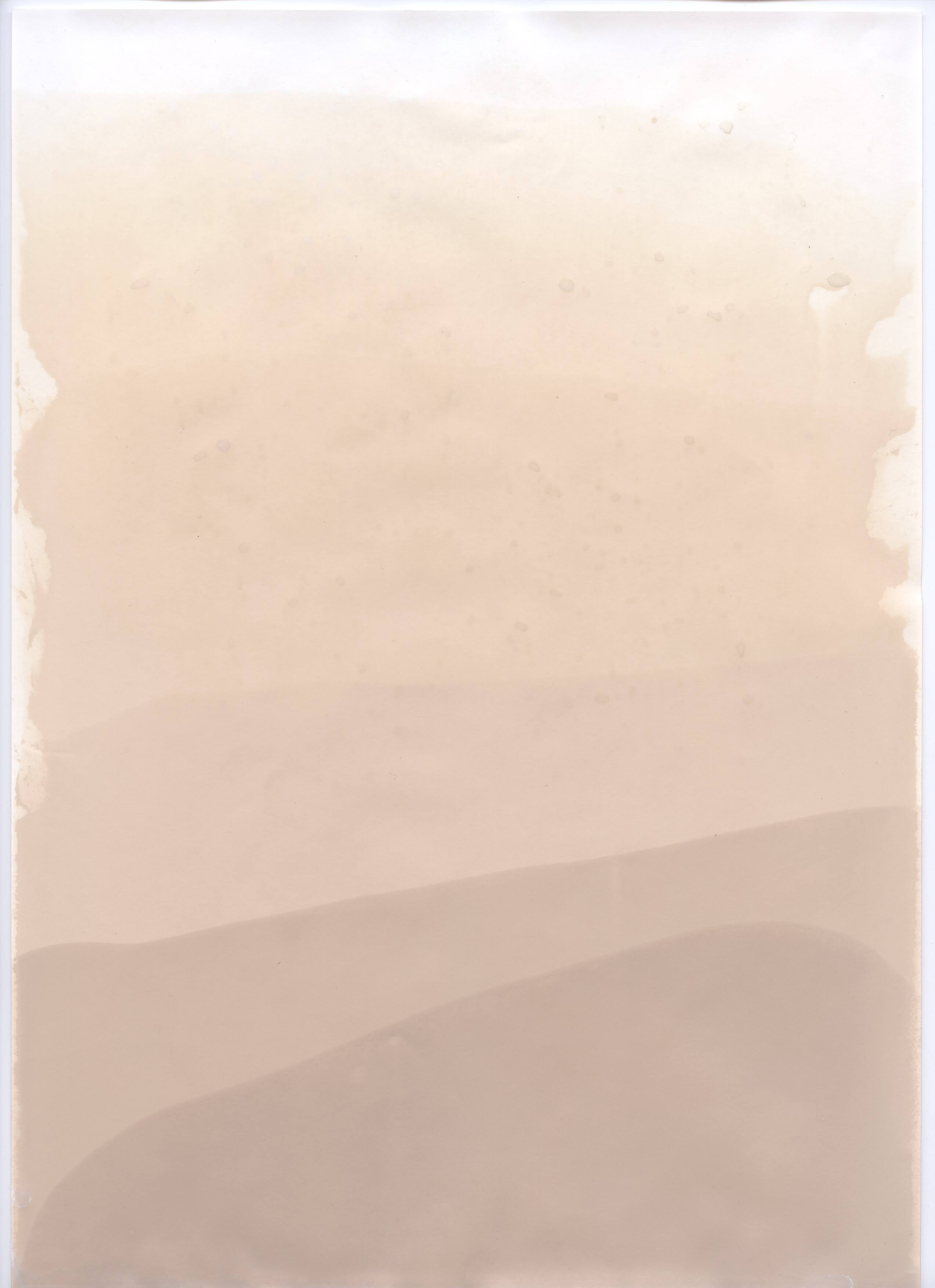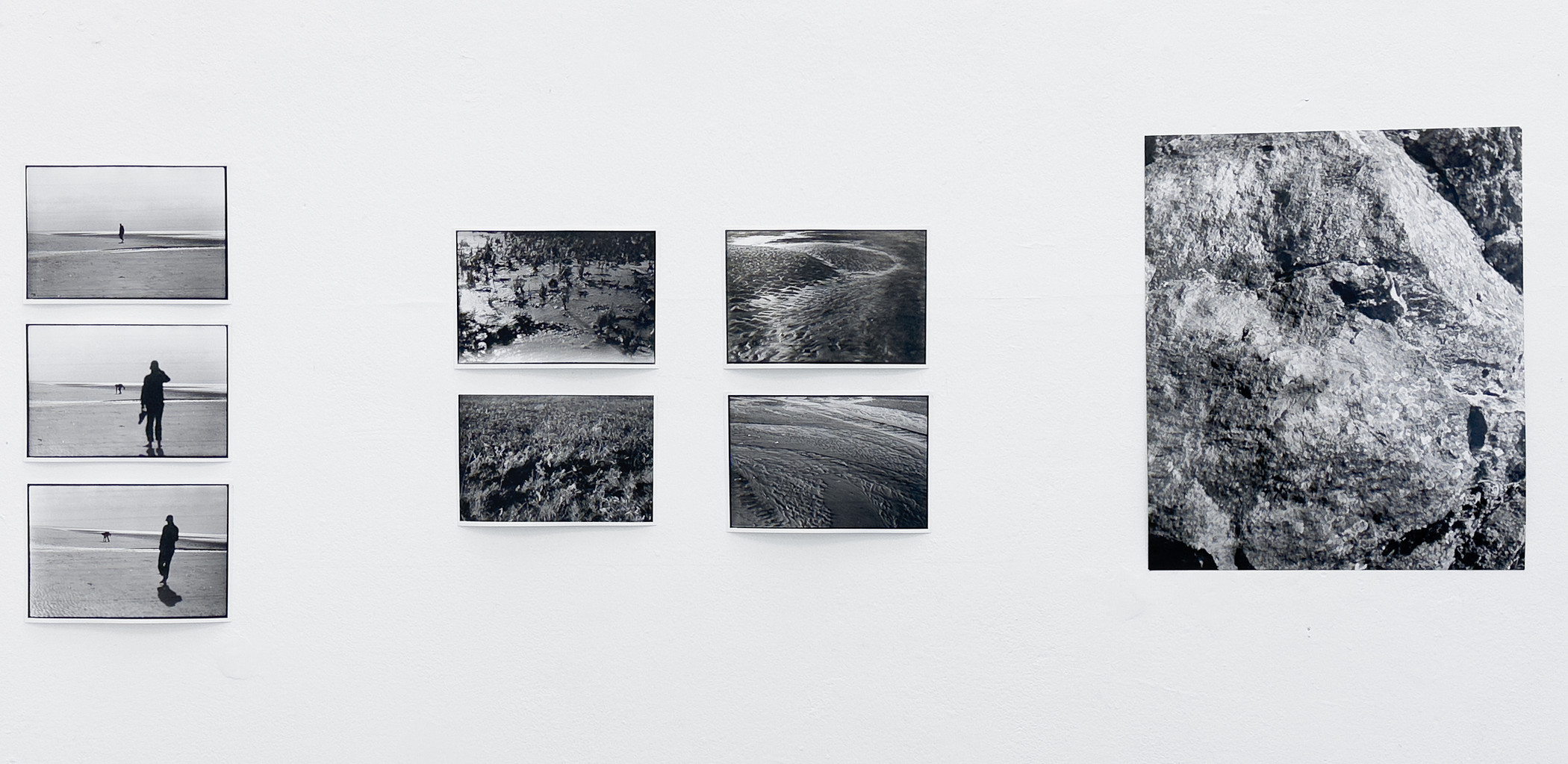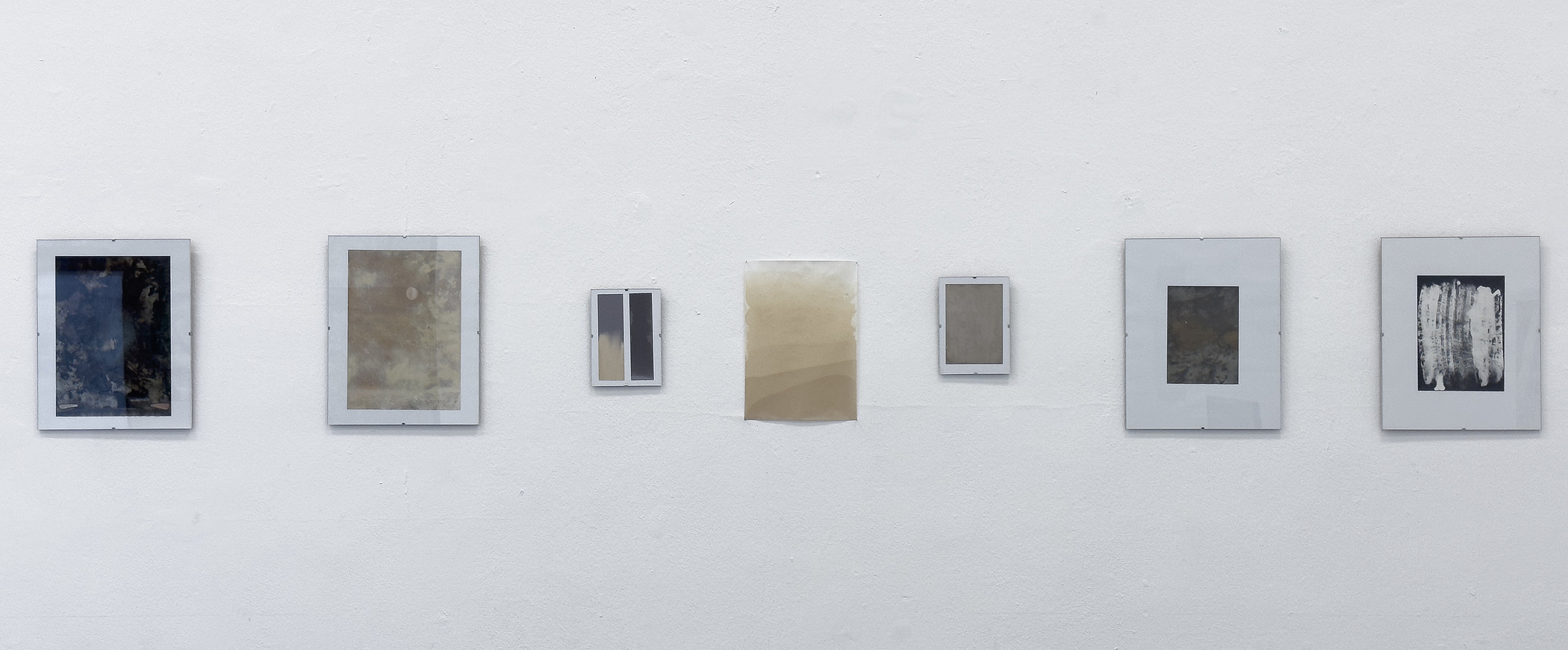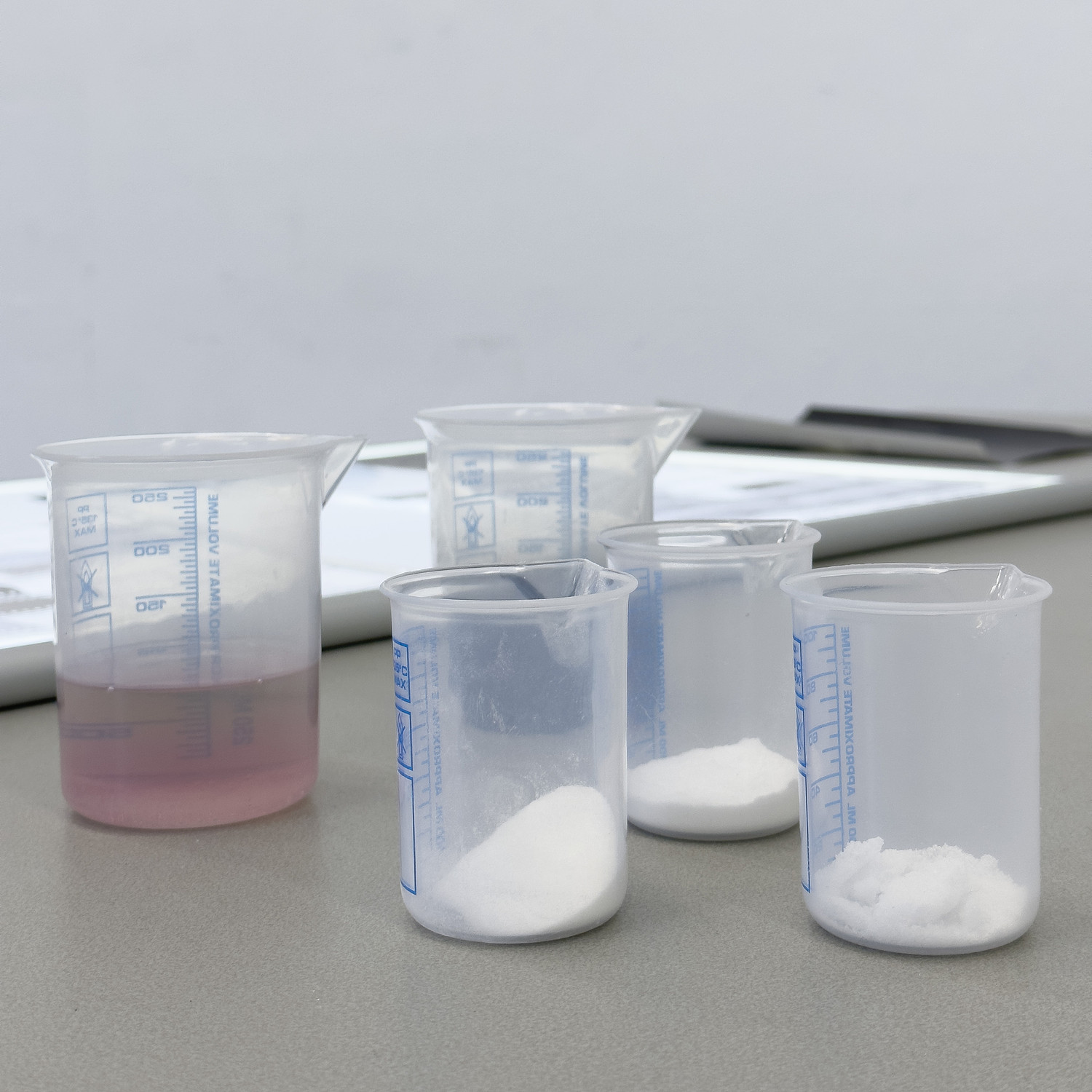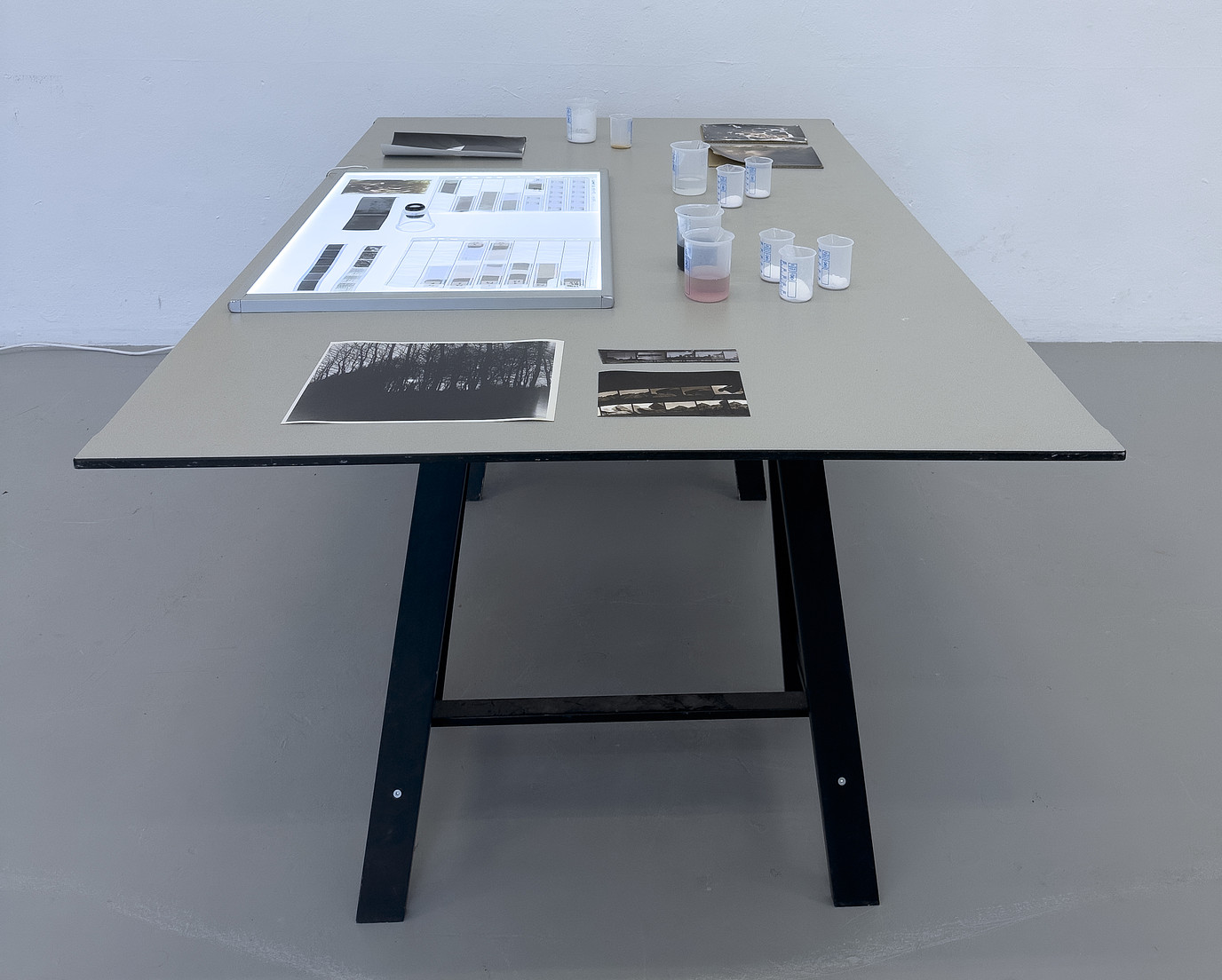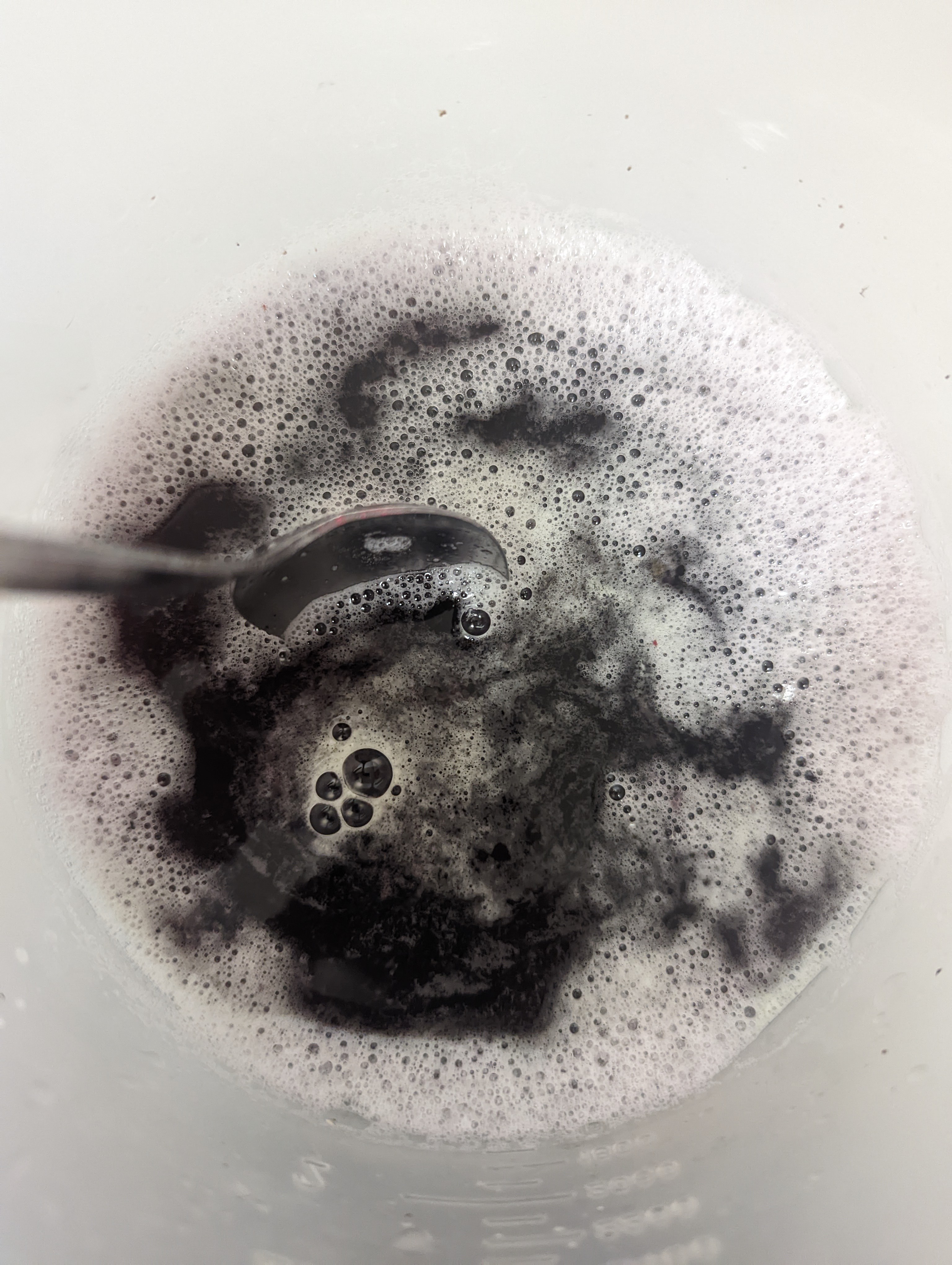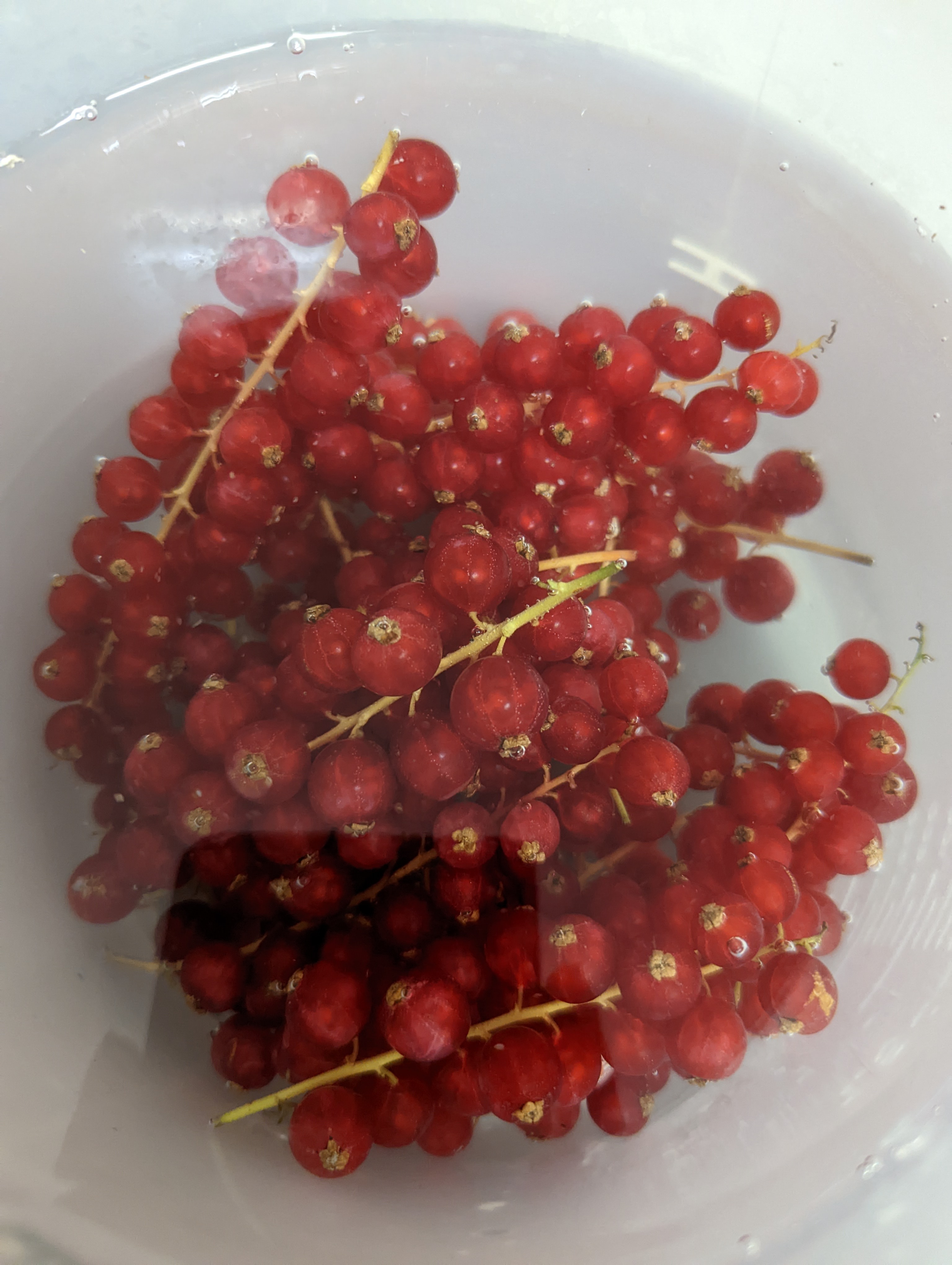Fragments
The work explores the symbolic role of plants as agents of absorption, representing nature's capacity to filter and absorb toxins from the environment. By using plants as both subjects and developers in the photographic process, the work emphasises the idea that plants not only absorb light but also the chemicals, pollutants, and minerals present in their surroundings. This approach highlights the duality of plants as symbols of both resilience and vulnerability in the face of environmental contamination. The use of photograms creates a visual trace that reflects how these natural elements are shaped by their environment. In contrast, the inclusion of abstract geometric shapes within the composition introduces a sense of disconnection, suggesting the distance
between human intervention and natural processes. The clean, rigid lines of these geometric forms stand in opposition to the organic, irregular shapes of the plants, reflecting the often rigid and out-of-sync
nature of human activity in relation to the environment.
The interplay between these elements—natural and synthetic, fragility and resilience, abstraction and organic—forms the core of this experimental work. Through the combination of plant imagery, geometric
abstraction, and the reactive qualities of silver nitrate, the piece captures the complexities of environmental decay. It invites reflection on the interdependence between human actions and the natural world, underscoring the fragmentary nature of this relationship.
The work explores the symbolic role of plants as agents of absorption, representing nature's capacity to filter and absorb toxins from the environment. By using plants as both subjects and developers in the photographic process, the work emphasises the idea that plants not only absorb light but also the chemicals, pollutants, and minerals present in their surroundings. This approach highlights the duality of plants as symbols of both resilience and vulnerability in the face of environmental contamination. The use of photograms creates a visual trace that reflects how these natural elements are shaped by their environment. In contrast, the inclusion of abstract geometric shapes within the composition introduces a sense of disconnection, suggesting the distance
between human intervention and natural processes. The clean, rigid lines of these geometric forms stand in opposition to the organic, irregular shapes of the plants, reflecting the often rigid and out-of-sync
nature of human activity in relation to the environment.
The interplay between these elements—natural and synthetic, fragility and resilience, abstraction and organic—forms the core of this experimental work. Through the combination of plant imagery, geometric
abstraction, and the reactive qualities of silver nitrate, the piece captures the complexities of environmental decay. It invites reflection on the interdependence between human actions and the natural world, underscoring the fragmentary nature of this relationship.
Studio Goppo offered valuable knowledge, equipment and expertise to contribute to my eco-darkroom development research. The work demonstrates the use of plant-based Pyrogallic Acid Developers effective when developing Silver Gelatine based emulsions. The results on Resin oated photographic paper are nearly flawless with minimal toning (Bokul developer).
Supported by Mondriaan Fonds.
Supported by Mondriaan Fonds.
Developers used in this work
B1 - Bokul leaves
100 g Leaves + stems + fruit (crushed)
700 g Distilled water
10g Sodium Carbonate
10g Sodium Sulphite
8g Ascorbic Acid
G1 - Guava leaves
50g Leaves + stems
700g Distilled water
10g Sodium Carbonate
10g Sodium Sulphite
10g Ascorbic Acid
A1 - Amla leaves
40g Leaves + stems
600g Distilled water
10g Sodium Carbonate
10g Sodium Sulphite
8g Ascorbic Acid
B1 - Bokul leaves
100 g Leaves + stems + fruit (crushed)
700 g Distilled water
10g Sodium Carbonate
10g Sodium Sulphite
8g Ascorbic Acid
G1 - Guava leaves
50g Leaves + stems
700g Distilled water
10g Sodium Carbonate
10g Sodium Sulphite
10g Ascorbic Acid
A1 - Amla leaves
40g Leaves + stems
600g Distilled water
10g Sodium Carbonate
10g Sodium Sulphite
8g Ascorbic Acid



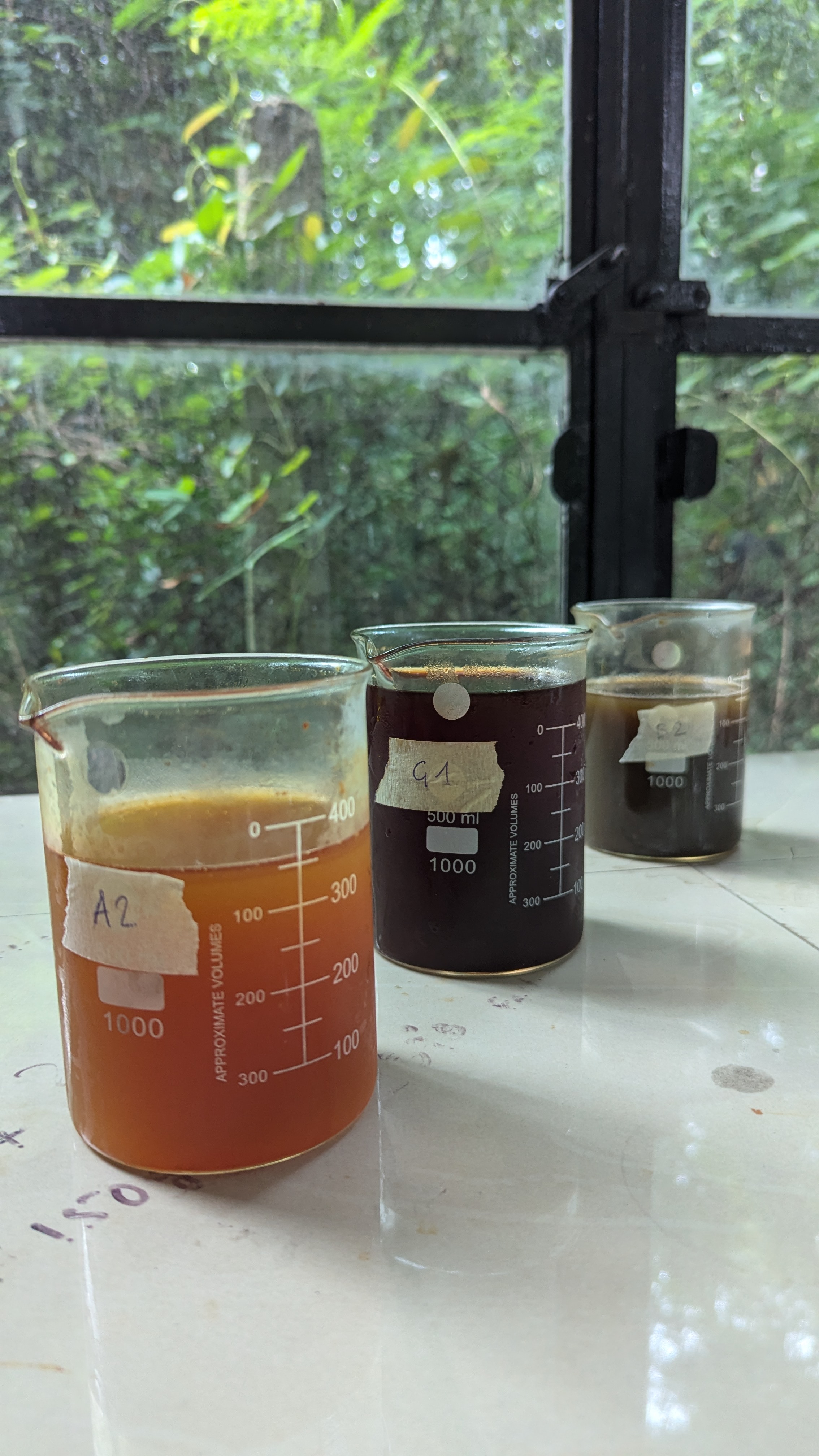




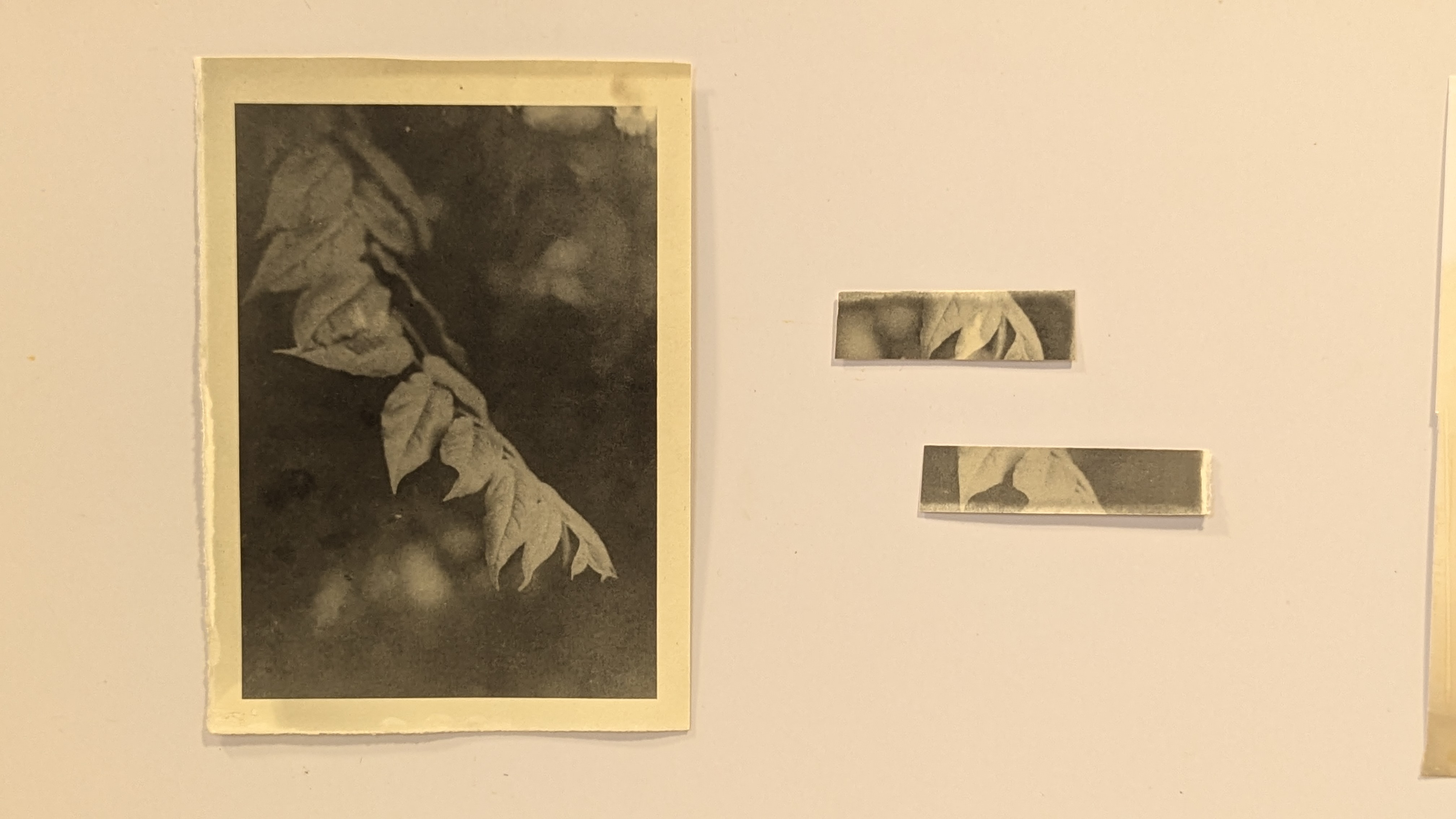


This
project investigates the toxic nature of analog photographic processes and the
sustainable alternatives that are available. Due to the mishandling of special
and toxic waste, a significant amount of territory in the south of Italy and
numerous countries in the African continent are severely polluted. The levels
of toxicity in the land and air affect the local communities with diseases and
disrupt the quality of locally grown produce. Analog photography plays a part
in the pollution of the territories in which it is operated, creating the need
for a sustainable alternative.
The
techniques used depend on polyphenolic and sodium ascorbate base with a
circular component in mind. Plant-based elements allow for an environmentally
safe mixture that matches the results of commercially available chemicals
without the use of oil refining byproducts and benzene derivatives. The prime
ingredients of the chemicals can be found in nature and extracted with natural
solvents of opposite polarity through boiling and maceration methods, creating
a solution that is safe to use and to discard. The waste products can be
recycled into compost or fast biodegradable matter.
This research was supported by Rijksakademie van Beeldende Kunsten in 2022
The following is a series of experiments on paper and film, part of the presentation Future of Art Making at Rijksakademie in Amsterdam. -read more
This research was supported by Rijksakademie van Beeldende Kunsten in 2022
The following is a series of experiments on paper and film, part of the presentation Future of Art Making at Rijksakademie in Amsterdam. -read more
Future of Art Making presentation - Rijksakademie van Beeldende Kunsten, NL 2022
